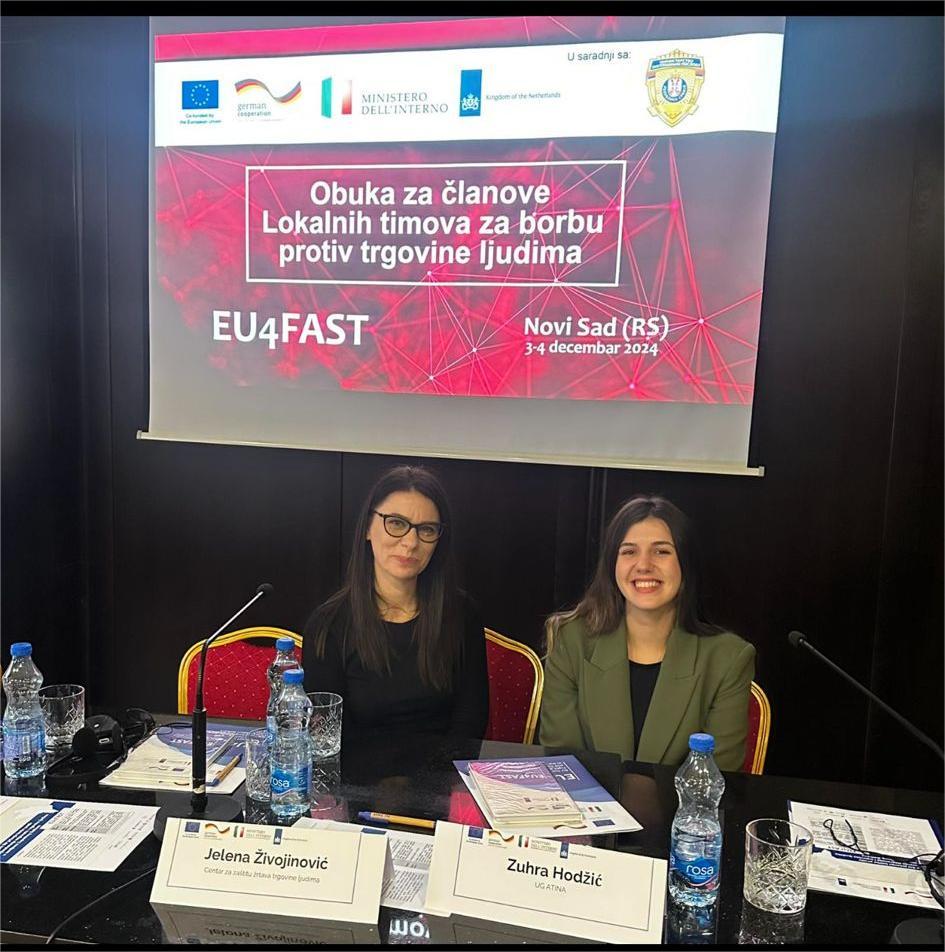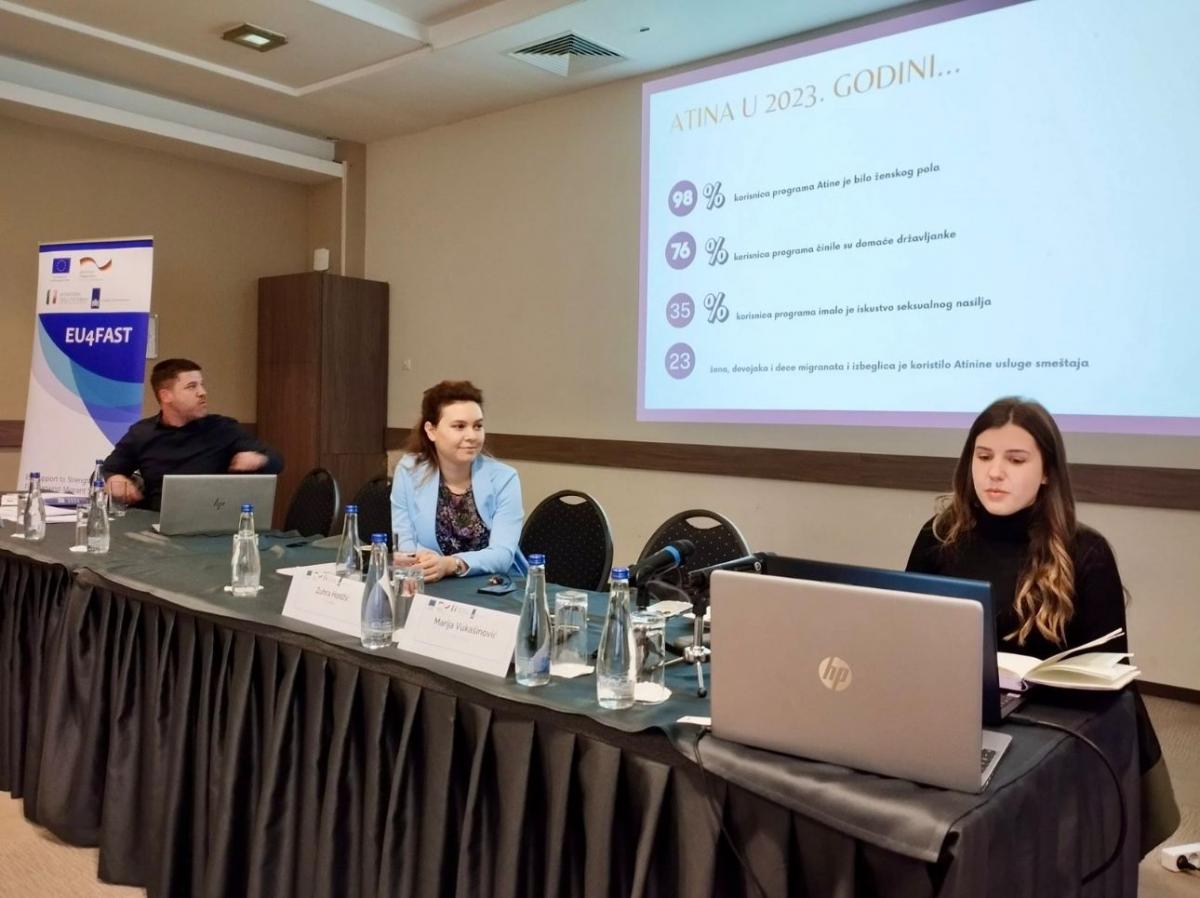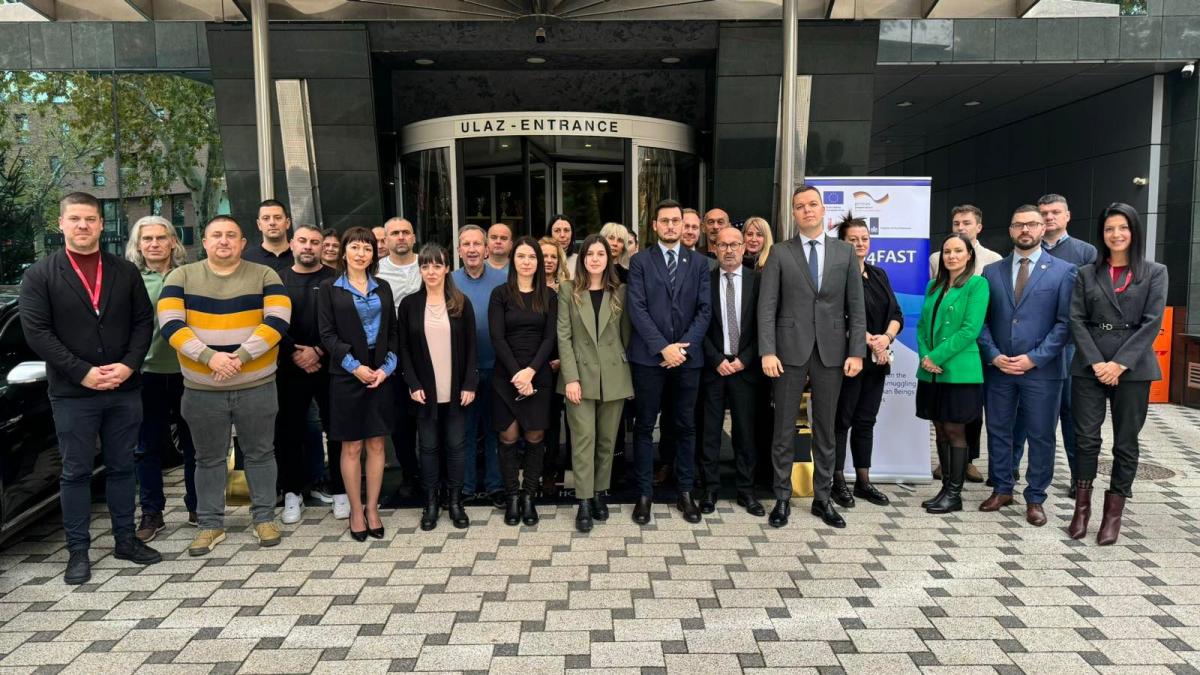Hotline: +381 61 63 84 071
Local Strength Against Human Trafficking

Local Strength Against Human Trafficking: Atina at Trainings in Kragujevac and Novi Sad
In the photo: Colleagues Zuhra Hodžić from NGO Atina and Jelena Živojinović from the Center for the Protection of Trafficking Victims
Two-day training sessions were held in Kragujevac and Novi Sad to strengthen the capacity of local teams and improve intersectoral cooperation in the fight against human trafficking. These sessions brought together representatives of key institutions and organizations from Serbia and the Western Balkans.
Representing NGO Atina, an organization with more than two decades of active work in combating human trafficking and gender-based violence, was licensed social worker Zuhra Hodžić. In her presentation, Hodžić emphasized the importance of a survivor-centered approach that focuses on human rights, individual needs, and personalized support services. She also underlined the critical role of civil society organizations in policy-making processes as a foundation for sustainable and effective responses to this complex issue.

Zuhra Hodžić from NGO Atina
The trainings were ceremonially opened in Kragujevac by Nenad Simić from the Office for Coordination of Activities in Combating Human Trafficking; Srđan Barac, Special Advisor to the Minister of Labor; Jovan Knežević from the Ministry of Public Administration and Local Self-Government; and Gordana Damjanović, Assistant to the Mayor and Local Team Coordinator.
In Novi Sad, the event was addressed by Đorđe Dabić from the Ministry of Public Administration and Local Self-Government; Dragan Popović from the Ministry of the Interior; and Nenad Drašković from the City Administration for Social and Child Protection, who also serves as Acting Deputy Head and Local Team Coordinator for the fight against trafficking in Novi Sad.

Local Teams for the Prevention and Suppression of Human Trafficking in Novi Sad and Sremska Mitrovica
Speakers highlighted the essential role of local teams as first responders in cases of human trafficking, emphasizing the need for both institutional strengthening and legislative reforms. The networking of all relevant actors—state institutions, local governments, and civil society organizations—was recognized as key to a comprehensive approach to preventing, protecting, and reintegrating victims.
During the training, two significant publications developed by Atina were presented: “Eight Stories,” which offers personal testimonies and expert insights into the complexity of trafficking, and “Local Communities in the Fight Against Human Trafficking,” which provides an analytical framework and concrete recommendations for strengthening local capacities, especially in victim protection and prevention.
These activities are essential to building more resilient local communities, systemic and sustainable victim support mechanisms, and stronger regional intersectoral cooperation. Atina remains committed to using its knowledge, experience, and advocacy to contribute to the development of systems that recognize, protect, and empower survivors of human trafficking.












 FACEBOOK
FACEBOOK TWITTER
TWITTER YOUTUBE
YOUTUBE